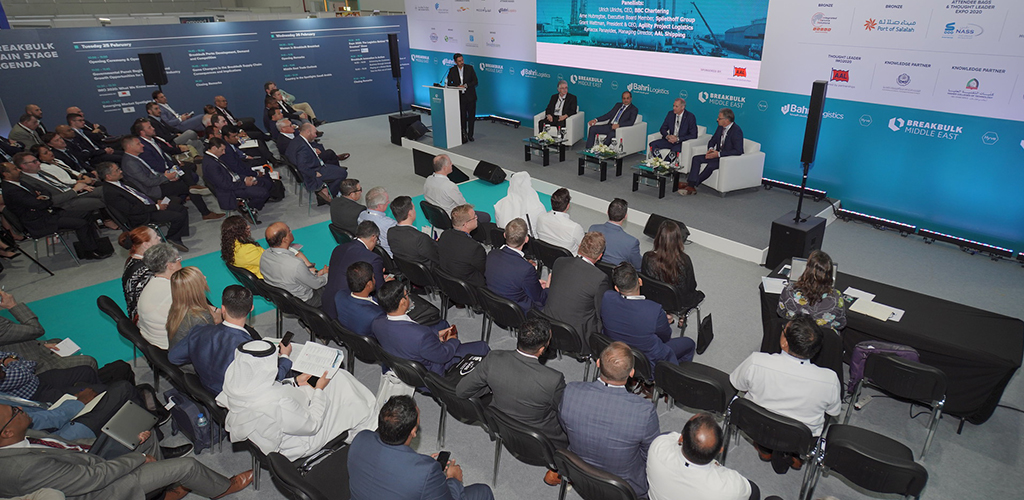Apr 02 | 2020
Virus, Overproduction Make Assessment Difficult

Three months on from the entry-into-force of the International Maritime Organization’s regulation restricting the sulfur content of marine fuels, the dust should have settled to give a true picture of global low sulfur fuel availability and price spread.
However, the downward movement of global oil prices since early January, owing to the impact of Covid-19 and Saudi Arabia’s decision to flood the market with more oil during a period of diminishing demand, has made it difficult to make an accurate assessment of the real impact of IMO 2020.
Panelist Cyril Varghese, global logistics director at Fluor, said that the market had assumed that freight fluctuations in January and February could be solely attributed to the switch to low sulfur fuel, but instead results were mixed, primarily due to significantly lower demand due to the impact of Covid-19.
That said, no stakeholders, in his view, had the excuse of hiding behind the new IMO regulation, as the requirements were clearly defined. Now that the legislation is in place, he urged those in the industry to steer away from “mindless gambling and be cognizant of what is happening in this new market.”
Grant Wattman, president and CEO, Agility Project Logistics, added that IMO 2020 seemed to come as a surprise to some in the industry. “Some stakeholders failed to build IMO 2020 into their models; others had contracts in place that straddled the implementation date.”
Since implementation, Wattman has noted a 10 percent to 15 percent increase in freight costs, and has seen varying levels of surcharges.
“Each carrier differs in their approach and application,” he said. “We must take the risk on the variability of what surcharge can be passed along in our fixed price contracts with clients – we take the risk on that pricing spread.” He added that he had witnessed competitors turning a blind eye to the pricing spread, pinning their hopes on renegotiation instead.
In addition to the pricing issues, there are also challenges with ship selection, with a lack of clarity on whether vessels are compliant in every region. “This is placing an exclamation mark on adequate vetting,” Wattman said. In an industry where clients often self-perform some activities, this is raising the question of where risk sits.
“Forwarders are seeing increased costs and stress on working capital. We are managing increased risks and a lack of predictability. But I also recognize that this unpredictability is becoming somewhat of the norm and that’s just how we have to manage the business,” Wattman said.
AAL Shipping Managing Director Kyriacos Panayides explained that his team had spent “endless hours” in planning and in panels discussing IMO 2020, only to find out that it was a comparatively “easy exercise” to do.
While there was initially a “chaotic market” in terms of pricing and availability, Panayides said this had stabilized. The main issue that AAL is now dealing with is quality. “This is still a big question-mark in the industry,” he said.
Scrubber Decision Rationale
Spliethoff Group was the only carrier in the multipurpose sector to install scrubbers on its fleet. Speaking at the event, Executive Board Member Arne Hubregtse explained the rationale behind that decision. “We decided to install scrubbers for two reasons: risk management and the environment. We were very well aware of the risks, the investment and the technical challenges.” He added that the group’s decision was also swayed by the consideration that the process of producing very low sulfur fuel oil creates more CO2 emissions, whereas scrubbers produce cleaner air, he said.
Spliethoff now has 70 vessels in operations with scrubbers installed.
BBC Chartering decided against fitting scrubbers to its fleet because there were too many unknowns, CEO Ulrich Ulrichs said. Added to which, some ports have opted to only supply very-low-sulfur fuel oil.
Ulrichs explained that initially the operator had thought to hedge its bets with its 160-strong fleet, 80 of which are controlled within the group. But in the end BBC decided against scrubbers because it “needed to be flexible as we use our ships all over the world.” That said, the six newbuilds that the carrier has on order are specified as “scrubber-ready.”
Ulrichs said that he was also surprised at the lack of preparation for the entry into force of the IMO legislation, especially given the long lead time to its implementation.
Post implementation, concerns about fuel quality remain. BBC receives about 3,000 stems a year, and by the first week of March it had already experienced two cases of off-spec fuel as a result of blending issues. “There are concerns about viscosity and density and that is quite an exposure and a risk. Even if you have very few cases, if you have a big one it will be very costly,” he said.
BBC has steadfastly refused to sign any contacts that do not include a bunker clause, however the operator is still “far away from covering cost” on spot.
Ulrichs expects the real damage of IMO 2020 to come to light when container carriers publish their financial figures. “I don’t expect them to be pretty,” he said. “Right now, we are in limbo; the final verdict is not out there yet on whether the scrubber was the right way to go.”
Indeed, scrubbers are not off the table for all MPV carriers. Both BBC’s and AAL’s executives confirmed during the session that they might reconsider scrubbers if the spread between the two fuels stays high.

